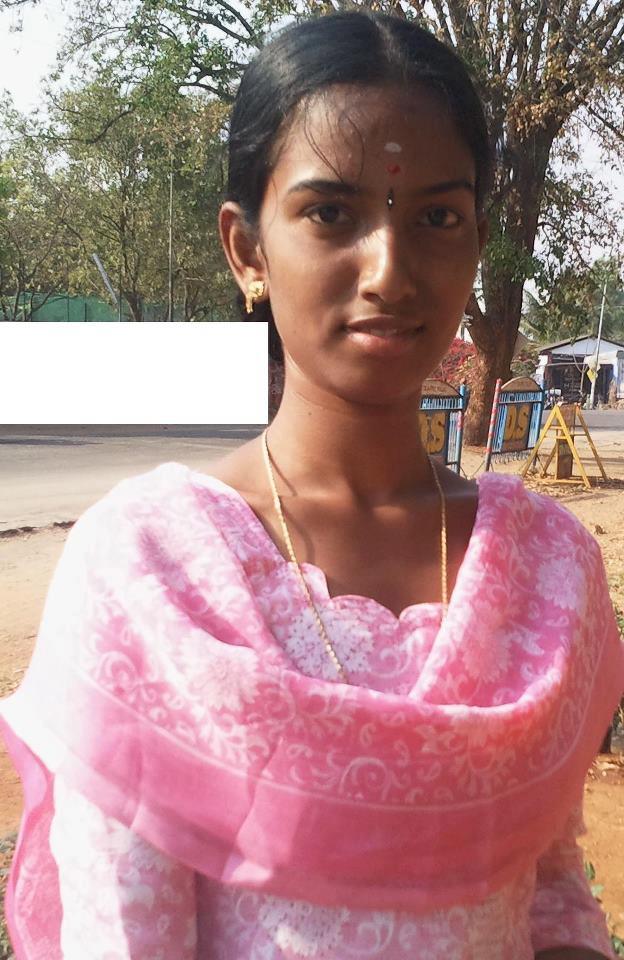The vibrant state of Tamil Nadu in Southern India is renowned for its glorious history, rich culture, and diverse traditions. This beautiful region boasts ancient temples, classical arts, and a unique social fabric that has evolved over centuries. In recent years, discussions around "Tamil Nadu sex" have emerged as a topic of interest, reflecting the changing dynamics of relationships and personal expression within the state. This article delves into the multifaceted aspects of Tamil Nadu, exploring its cultural heritage, social norms, and the evolving conversation around sexuality.
Tamil Nadu's cultural landscape is deeply intertwined with its historical roots and traditional values. The state is home to some of the most exquisite examples of Dravidian architecture, with temples like Brihadeeswarar and Meenakshi standing as testaments to its artistic and architectural prowess. These cultural landmarks not only attract tourists but also serve as centers of spiritual and social life. Despite the preservation of age-old customs, Tamil Nadu is witnessing a gradual shift in social attitudes, especially concerning topics like sex and relationships.
The conversation around "Tamil Nadu sex" is not merely about the physical aspect but encompasses a broader dialogue about freedom, consent, and individual rights. In a society that has often been conservative in its approach to sexuality, young people are increasingly seeking to redefine personal boundaries and embrace modern values. This shift is influenced by factors such as education, media exposure, and the global exchange of ideas. As we explore this topic, it is essential to understand the balance between maintaining cultural integrity and adapting to contemporary social norms.
Table of Contents
- Cultural Heritage and Historical Roots
- Social Norms and Traditions
- What are the Modern Challenges Facing Tamil Nadu?
- Role of Education in Shaping Perspectives
- Media and Internet: Catalysts for Change?
- Youth Perspectives on Relationships
- How are Gender Roles Evolving?
- Legal Framework and Rights
- Health Awareness and Sexual Education
- Role of Religion in Shaping Attitudes
- Family Influence on Personal Choices
- Community Interactions and Support Systems
- What Challenges Do Individuals Face?
- Future Trends and Predictions
- FAQs
Cultural Heritage and Historical Roots
Tamil Nadu's cultural heritage is a blend of ancient traditions, artistic excellence, and historical significance. The state has been a cradle of civilization, with its history dating back to the Sangam period. This era marked the flourishing of Tamil literature, art, and architecture, setting the foundation for the region's cultural identity. The Dravidian architecture, evident in the majestic temples, reflects the state's devotion to art and spirituality.
These temples are not merely places of worship but are also integral to Tamil Nadu's social and cultural life. Festivals like Pongal and Diwali are celebrated with great fervor, showcasing the state's rich traditions. Despite the modern influences, Tamil Nadu has managed to preserve its cultural essence, making it a unique blend of old and new.
Social Norms and Traditions
Tamil Nadu's social norms are deeply rooted in its cultural and religious traditions. The society is traditionally hierarchical, with respect for elders and adherence to family values being paramount. Arranged marriages are still prevalent, although there is a growing acceptance of love marriages. The role of women in society is evolving, with more emphasis on education and career development.
Traditionally, discussions around sex and relationships were considered taboo; however, with changing times, there is a gradual shift in perception. The younger generation is more open to discussing and exploring these topics, reflecting broader societal changes.
What are the Modern Challenges Facing Tamil Nadu?
The rapid pace of modernization has brought about numerous challenges for Tamil Nadu. Urbanization and globalization have led to a clash between traditional values and modern lifestyles. This dichotomy is particularly evident in the realm of relationships and sexuality. While there is greater acceptance of different lifestyles, there are still societal pressures that individuals face.
Balancing personal freedom with societal expectations remains a significant challenge. The tension between cultural conservatism and modern liberalism can create conflicts, especially among the youth who seek to carve their own identity.
Role of Education in Shaping Perspectives
Education plays a crucial role in shaping the perspectives of individuals in Tamil Nadu. With the proliferation of educational institutions, there is greater awareness and understanding of various social issues. Sex education, although still a work in progress, is being integrated into the curriculum to provide students with knowledge about health, consent, and relationships.
Educational initiatives aim to dispel myths and misconceptions related to sexuality, promoting informed and healthy choices. The focus is on creating an environment where individuals can discuss these topics openly and without fear of judgment.
Media and Internet: Catalysts for Change?
The media and the internet have emerged as powerful catalysts for change in Tamil Nadu. With increased access to information and exposure to global cultures, individuals have become more open-minded and accepting of diverse perspectives. Social media platforms, in particular, have facilitated discussions around topics that were once considered taboo.
The portrayal of relationships and sexuality in films and television shows has also evolved, reflecting changing societal attitudes. While media exposure is a double-edged sword, it has undeniably played a role in shaping contemporary values and norms.
Youth Perspectives on Relationships
The youth of Tamil Nadu are at the forefront of challenging traditional norms and redefining relationships. Unlike previous generations, today's youth are more vocal about their rights, choices, and desires. They seek relationships based on mutual respect, understanding, and personal freedom.
Online forums and communities provide platforms for young people to share experiences and seek advice, fostering a sense of belonging and empowerment. This shift in perspective is indicative of a broader trend towards individualism and autonomy.
How are Gender Roles Evolving?
Gender roles in Tamil Nadu are undergoing significant transformation. Historically, the state has adhered to traditional gender norms, with distinct roles for men and women. However, with increased education and economic opportunities, these roles are being redefined.
Women are increasingly taking on leadership roles in various sectors, challenging stereotypes and advocating for equality. Men, too, are embracing roles that were traditionally considered feminine, reflecting a shift towards more fluid and inclusive gender identities.
Legal Framework and Rights
The legal framework in Tamil Nadu plays a critical role in safeguarding the rights of individuals. Laws related to marriage, divorce, and domestic violence are evolving to reflect modern values and protect the rights of all citizens. The state has also implemented policies to address issues like gender discrimination and sexual harassment.
While progress has been made, there is still work to be done to ensure that all individuals can exercise their rights without fear of discrimination or retribution. Legal reforms are essential to support the changing social landscape and uphold justice and equality.
Health Awareness and Sexual Education
Health awareness and sexual education are fundamental to fostering a healthy society. In Tamil Nadu, there is an increasing emphasis on educating individuals about sexual health, consent, and safe practices. Public health campaigns and initiatives aim to raise awareness and provide resources to those in need.
Access to healthcare services, including reproductive health services, is being improved to ensure that individuals can make informed choices about their bodies and relationships. Education and awareness are vital components in promoting a well-informed and healthy community.
Role of Religion in Shaping Attitudes
Religion plays a significant role in shaping the attitudes and beliefs of individuals in Tamil Nadu. The state is predominantly Hindu, with a rich tapestry of religious practices and traditions. Religious teachings often influence social norms and values, including those related to relationships and sexuality.
While religion can be a source of guidance and support, it can also present challenges in reconciling traditional beliefs with modern values. Interfaith dialogues and discussions are crucial in fostering understanding and acceptance among diverse communities.
Family Influence on Personal Choices
Family plays a central role in the lives of individuals in Tamil Nadu, often influencing personal choices and decisions. The family unit is traditionally close-knit, with strong bonds and a sense of responsibility towards one another. However, this can sometimes lead to conflicts when personal desires clash with family expectations.
Young people are increasingly navigating the delicate balance between honoring family traditions and pursuing their own paths. Open communication and mutual respect are essential in bridging generational gaps and fostering harmonious relationships.
Community Interactions and Support Systems
Community interactions and support systems are vital in providing individuals with a sense of belonging and security. In Tamil Nadu, communities often come together to celebrate festivals, participate in cultural events, and support one another in times of need.
Community-based organizations and initiatives play a crucial role in addressing social issues, providing resources, and advocating for change. These support systems are essential in fostering a sense of unity and collective responsibility.
What Challenges Do Individuals Face?
Individuals in Tamil Nadu face a myriad of challenges in navigating the complexities of modern life. From societal pressures and family expectations to legal and economic barriers, the path to personal freedom and fulfillment can be fraught with obstacles.
Despite these challenges, there is a growing movement towards empowerment and self-determination. Individuals are increasingly advocating for their rights and seeking to create a society that values diversity, equality, and personal choice.
Future Trends and Predictions
The future of Tamil Nadu is likely to be shaped by a confluence of traditional values and modern influences. As the state continues to evolve, there will be ongoing discussions about the balance between preserving cultural heritage and embracing change.
Education, technology, and global interactions will play pivotal roles in shaping the future of relationships and societal norms. The state is poised to become a model for progressive change while maintaining its rich cultural legacy.
FAQs
- What is the significance of Tamil Nadu's cultural heritage?
- How are gender roles changing in Tamil Nadu?
- What role does religion play in Tamil Nadu's society?
- How is education impacting perceptions of relationships?
- What challenges do individuals face in modern Tamil Nadu?
- What is the future of societal norms in Tamil Nadu?
Tamil Nadu's cultural heritage is significant due to its rich history, artistic traditions, and architectural marvels, which reflect the state's unique identity.
Gender roles in Tamil Nadu are evolving with increased education and economic opportunities, leading to more inclusive and fluid identities.
Religion plays a central role in shaping social norms and values, often influencing attitudes towards relationships and sexuality.
Education is crucial in shaping open and informed perspectives on relationships, promoting awareness and understanding of various social issues.
Individuals face challenges such as societal expectations, family pressures, and legal barriers while navigating personal freedom and identity.
The future of societal norms in Tamil Nadu will likely be influenced by a blend of traditional values and modern influences, with ongoing discussions about balance and change.
Conclusion
Tamil Nadu stands at the crossroads of tradition and modernity, with its rich cultural heritage serving as a foundation for a progressive future. The evolving conversation around "Tamil Nadu sex" reflects the broader societal changes taking place, as individuals seek to redefine personal boundaries and embrace new values. As the state continues to navigate these complexities, it remains a vibrant tapestry of history, culture, and modernity, offering a unique perspective on the balance between tradition and change.
Article Recommendations

